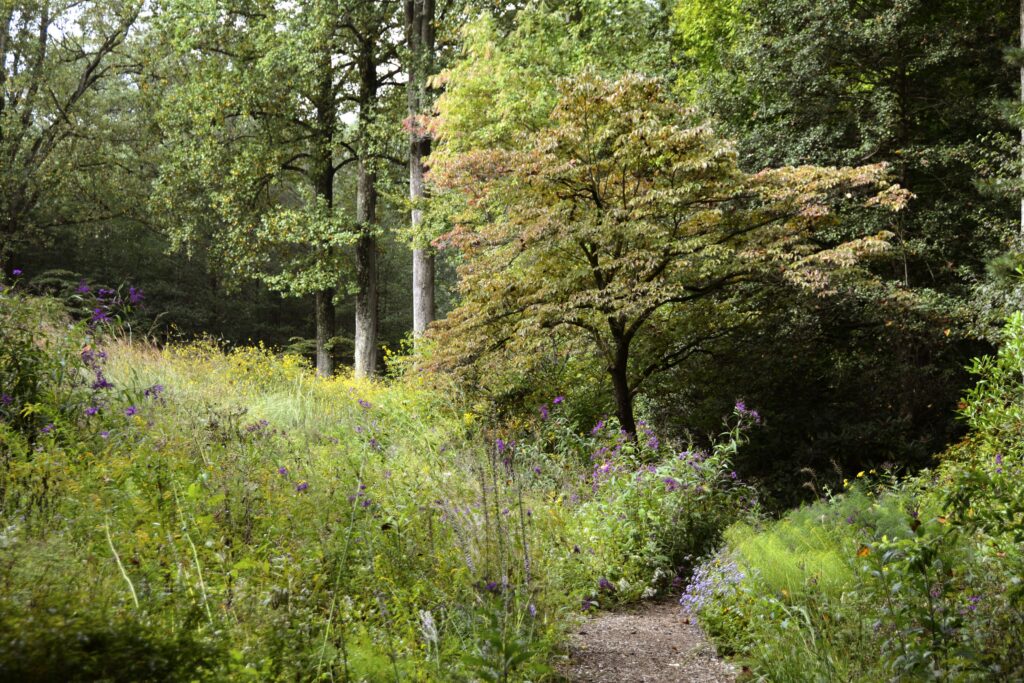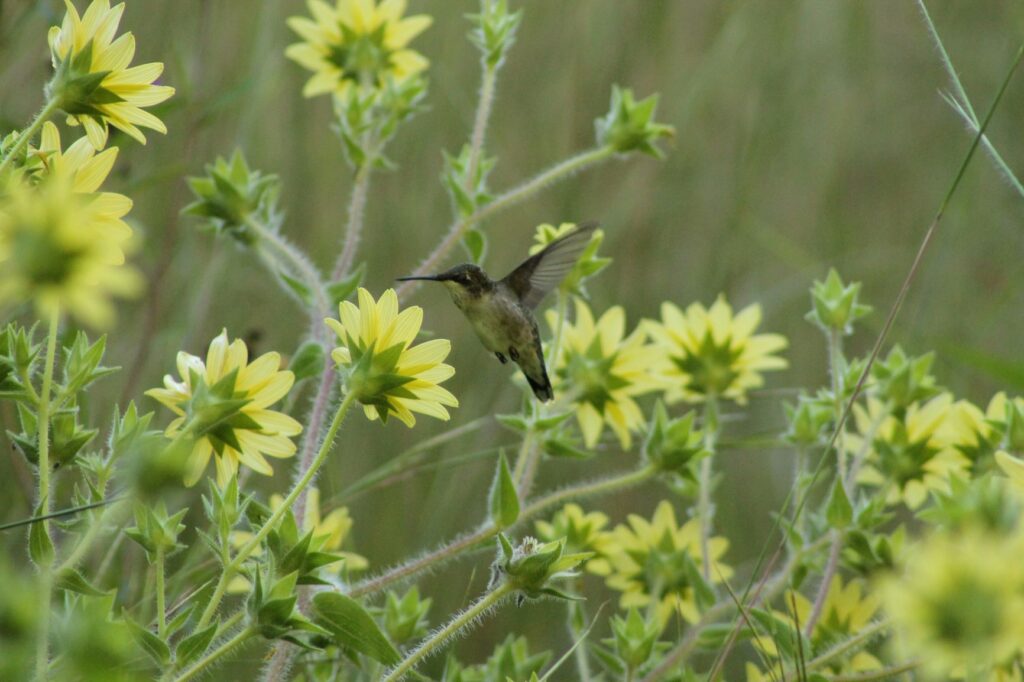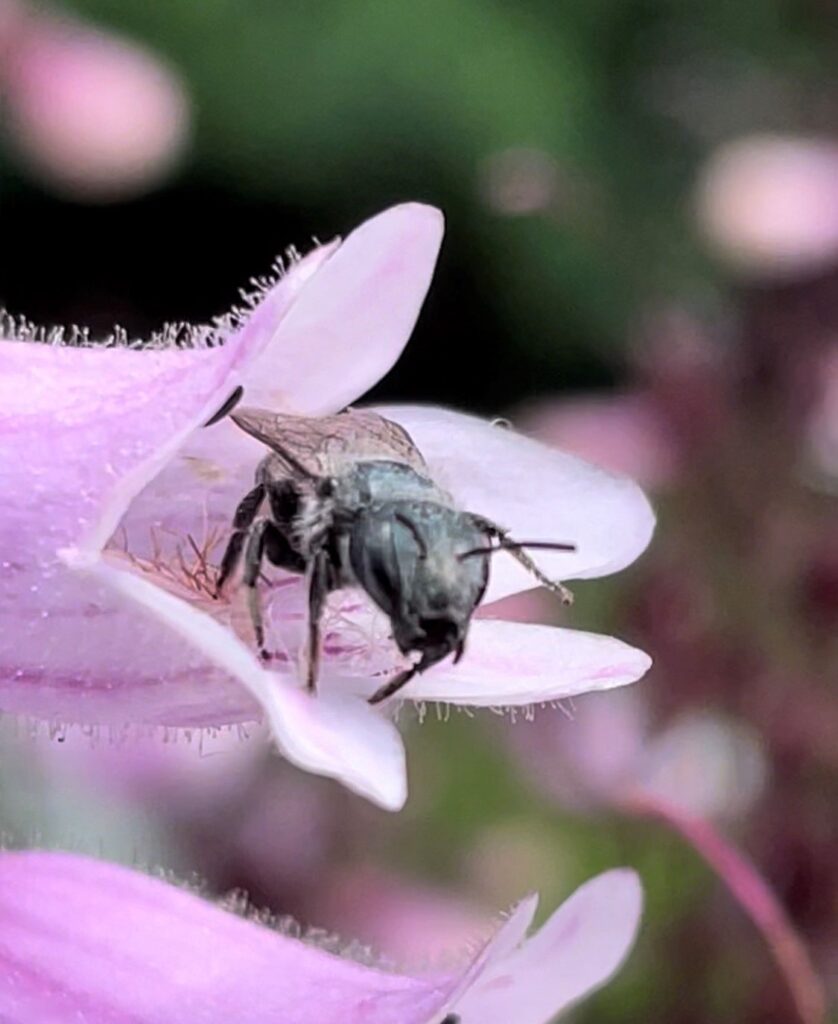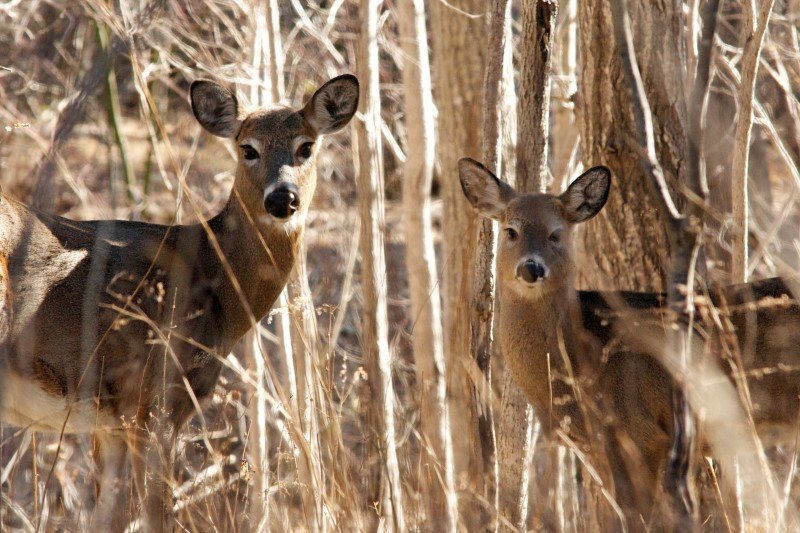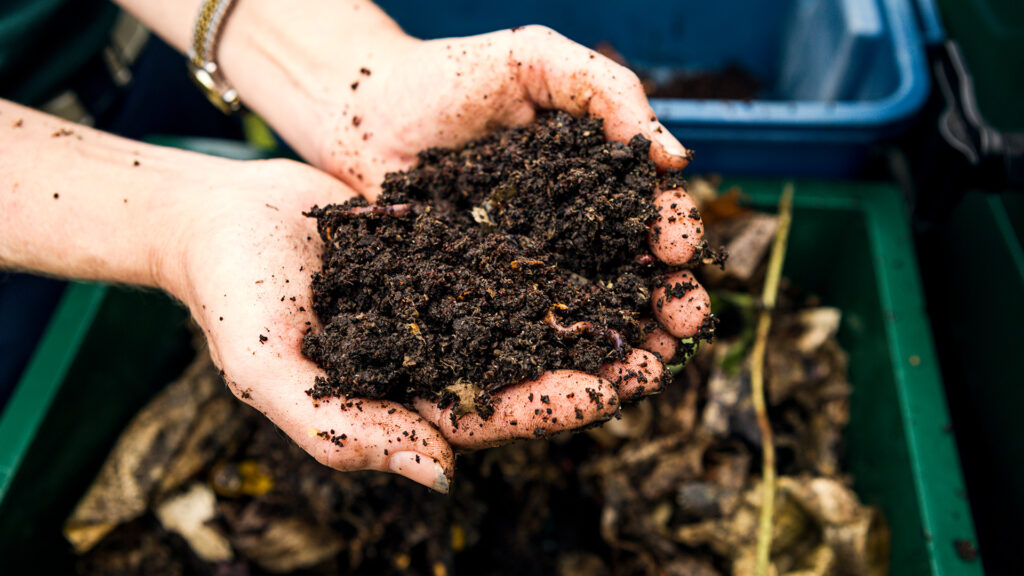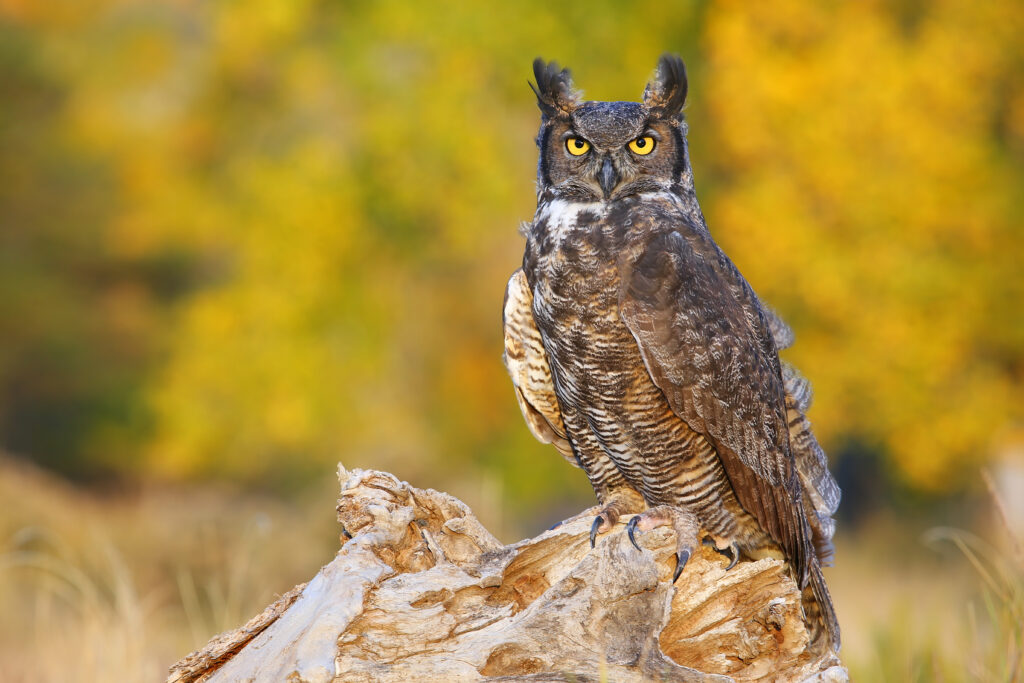Pollinators in the woods? Explore the many ways wild bees nest and forage in woody habitats. Most native bees are solitary and have long evolutionary relationships with our beloved wildflowers and provide important pollination services which ensure the stability of many of our favorite fruits, nuts, and vegetables. In the northeastern US, up to 1/3
MoreCreate more ecologically sound landscapes by implementing a variety of sustainable gardening and landscaping techniques. Learn how to manage and conserve water using rain gardens, bioswales, and rain barrels. Reduce the demands of lawn care by adding meadow areas and increase your energy savings with strategically placed layered plantings. Develop your garden to support a
MoreGet ready for hummingbirds! These amazing creatures will arrive this spring in your garden after traveling more than 3,000 miles from their Central American winter sites. Learn about their life cycle, migration patterns, and the plants that attract and sustain them. Then stroll through the garden to see potential food sources, nest materials, and former
MoreMuch has been written about gardening for human senses, but how do plants and animals perceive the world around them? What do we miss when we landscape for human visual appeal but neglect the sensory experiences of our wild neighbors? Noise, light and odor pollution can have many unintended consequences. Through science, heart, and our
MoreDeer, oh deer. Join us online with horticulturist Gregg Tepper for an entertaining and informative lecture inspired by Gregg’s recently co-authored book, Deer-Resistant Native Plants for the Northeast. Gregg will share his experiences with what he’s found to be the best native deer-resistant plants and how to create a strategy for rebuffing deer with effective
MoreFRIEDAcommunity is proud to announce the show A closer look by Gerri Spilka. Join us and the artist on Friday, December 1, First Friday, during the opening reception from 6pm to 8pm. Gerri Spilka considers herself to be an alchemist who takes ordinary pieces of cotton and transforms them into larger-than-life shapes of glorious, luminous
MoreJoin us for a conversation with Gerri Spilka in a more intimate and relaxed setting. Following the talk, dinner will be served allowing for more discussion with the artist and among guests. A talk with Gerri Spilka Date: Wednesday, January 17, 2024 Talk: 6:00 pm – 6:45 pm Dinner: served at 7:00 pm Location: FRIEDA,
MoreJoin the family fun at the Holiday Candlelight Tour and Open House, 4-6 p.m. Sunday, Dec. 10, at Historic Waynesborough in Paoli. The historic mansion has been beautifully decorated for the season by the Suburban and Springfield Garden Clubs. Take a tour, craft festive ornaments for the holiday tree, and enjoy refreshments, music, and more.
MoreTurn your trash to treasure with home-scale composting. Transform everyday kitchen scraps into nutrient-rich treasure (compost) that makes plants flourish. Learn the key elements of creating compost at home, what materials can be safely composted, and how to keep the compost bin from smelling. Storage bin options will be discussed and demonstrated. This program takes
MoreMany people have heard an owl, but few have ever seen one. Mt. Cuba’s varied landscapes and topography provide the ideal habitats for three of Delaware’s native owl species – the barred, great horned, and Eastern screech – and winter is the best time to spot them roosting in our trees. Owls are nocturnal so
More


